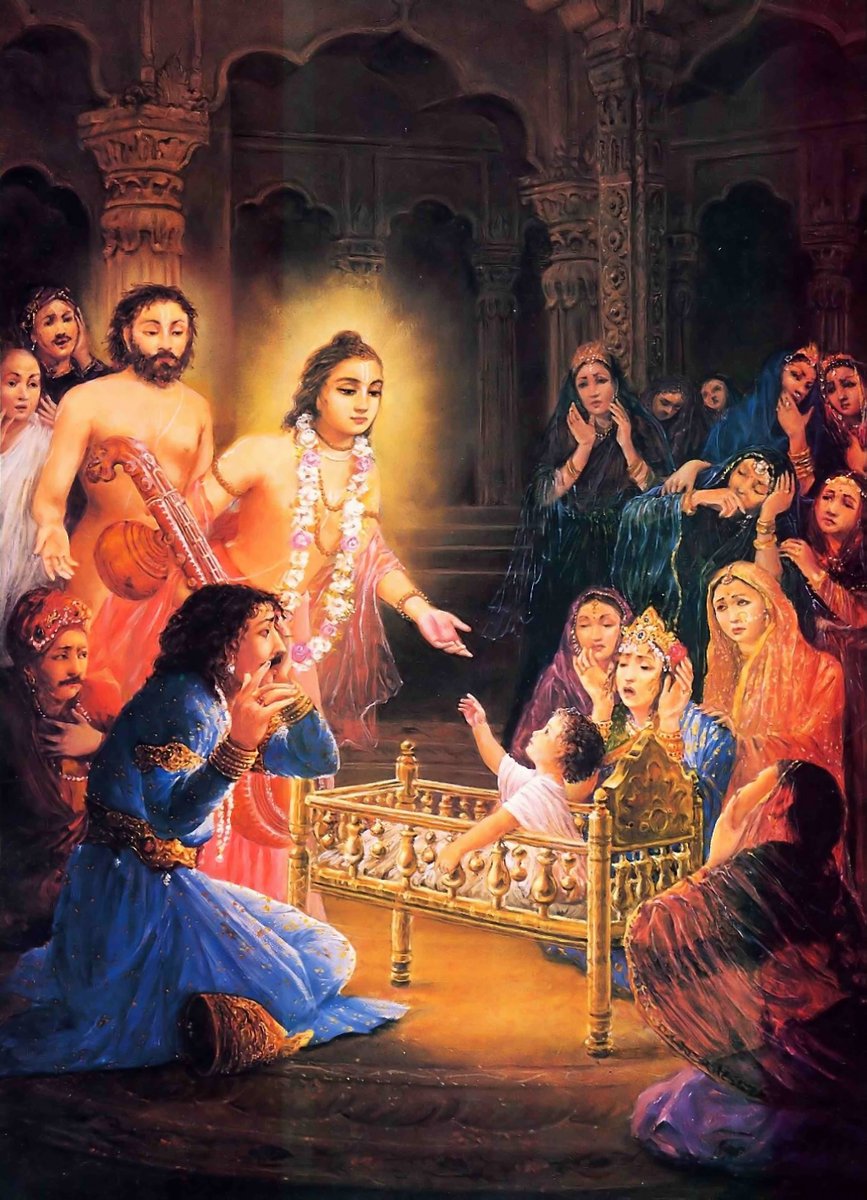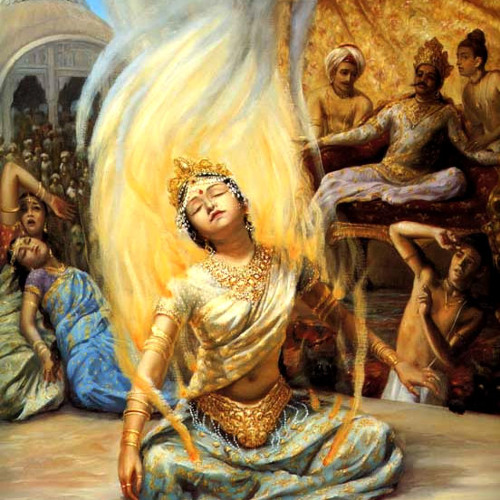
#Thread #DHARMA #STORIES
Last of the 3 Part Story
1/9
Having learnt from Nārada, the report of the death of his wife Sati on being insulted by Prajapati Daksa and of the total rout of the army of his attendants by the Bhrgu in that Sacrifice, Śiva’s anger knew no bounds.
Last of the 3 Part Story
1/9
Having learnt from Nārada, the report of the death of his wife Sati on being insulted by Prajapati Daksa and of the total rout of the army of his attendants by the Bhrgu in that Sacrifice, Śiva’s anger knew no bounds.

2/9
Śiva got enraged, he pulled out a matted lock of hair which dazzled with terrific splendour, like flash of lightning and flame of fire. He sprang to his feet, and with loud laughter and roar, dashed it on ground, From it was born Virabhadra, of colossal size, who touched
Śiva got enraged, he pulled out a matted lock of hair which dazzled with terrific splendour, like flash of lightning and flame of fire. He sprang to his feet, and with loud laughter and roar, dashed it on ground, From it was born Virabhadra, of colossal size, who touched
3/9
the skies, by his stature. He had a thousand arms. His complexion was like a dark cloud. He had three eyes brilliant like the Sun, He had sharp fangs, His locks of hair were shining like burning flames fire. He wore a garland of skulls and held various weapons aloft.
the skies, by his stature. He had a thousand arms. His complexion was like a dark cloud. He had three eyes brilliant like the Sun, He had sharp fangs, His locks of hair were shining like burning flames fire. He wore a garland of skulls and held various weapons aloft.
4/9
Śiva, the Supreme Lord, the master of bhūtas commanded Virabhadra who, with folded hands, requested for an order. “Oh Rudra, as you are my part. You be the leader of my army, oh warrior, destroy Daksa along with his sacrifice”. Virabhadra was followed by attendants of Rudra
Śiva, the Supreme Lord, the master of bhūtas commanded Virabhadra who, with folded hands, requested for an order. “Oh Rudra, as you are my part. You be the leader of my army, oh warrior, destroy Daksa along with his sacrifice”. Virabhadra was followed by attendants of Rudra
5/9
who were roaring loudly, The big sacrificial pandal was rushed at on all sides, and occupied by the followers of Rudra. They broke havoc everywhere.
The three-eyed Virabhadra threw down Daksa and seating himself on Daksa’s chest, cut his head by a sharp edged weapon.
who were roaring loudly, The big sacrificial pandal was rushed at on all sides, and occupied by the followers of Rudra. They broke havoc everywhere.
The three-eyed Virabhadra threw down Daksa and seating himself on Daksa’s chest, cut his head by a sharp edged weapon.
6/9
Thereupon all the hosts of gods were defeated by the armies of Rudra. Lord Brahmā accompanied gods and sages to Kailāsa and requested Lord Śiva to show mercy and restore the sacrifice of Daksa.
Knowing that god Brahmā had come Śiva rose from his seat and bowed to Brahmā.
Thereupon all the hosts of gods were defeated by the armies of Rudra. Lord Brahmā accompanied gods and sages to Kailāsa and requested Lord Śiva to show mercy and restore the sacrifice of Daksa.
Knowing that god Brahmā had come Śiva rose from his seat and bowed to Brahmā.
7/9
Lord Śiva joined the gods and sages and came back to place of sacrifice, he then joined the head of the sacrificial animal (he-goat) to the trunk of Daksa.
While the head was being joined to Daksa’s body, Śiva cast a gracious look at it, Daksa got up as though from sleep,
Lord Śiva joined the gods and sages and came back to place of sacrifice, he then joined the head of the sacrificial animal (he-goat) to the trunk of Daksa.
While the head was being joined to Daksa’s body, Śiva cast a gracious look at it, Daksa got up as though from sleep,
8/9
and saw Śiva in front of him. Prajapati Daksa whose mind bad been turbid with hatred against Śiva , became free from that hatred.He (Daksa) had a mind to offer praise (to Śiva). He thought of his daughter who was no more and his throat got chocked
and saw Śiva in front of him. Prajapati Daksa whose mind bad been turbid with hatred against Śiva , became free from that hatred.He (Daksa) had a mind to offer praise (to Śiva). He thought of his daughter who was no more and his throat got chocked
9/9
with tears of affection and anxiety, and he could not utter a word of praise.
With a concentrated mind he waited upon Rudra by offering the share due to him (viz. the remains of the sacrifice).
Daksa took back the curse he had placed in Lord Śiva.
with tears of affection and anxiety, and he could not utter a word of praise.
With a concentrated mind he waited upon Rudra by offering the share due to him (viz. the remains of the sacrifice).
Daksa took back the curse he had placed in Lord Śiva.
• • •
Missing some Tweet in this thread? You can try to
force a refresh









